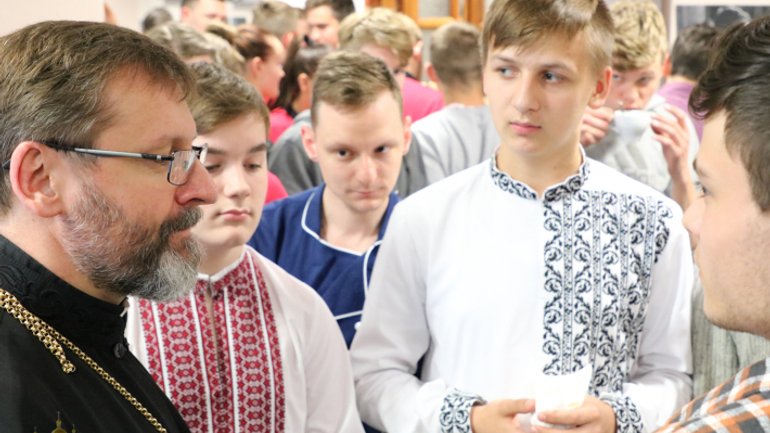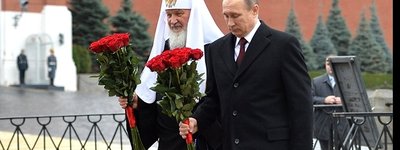Should the State Teach (about) Religion?

Order No. 641 of the Ministry of Education and Science of Ukraine of 18 May 2020 amended previous law by disbanding three commissions created in 2011: the Commission on World View Disciplines, the Commission on Ethics, and the Commission on Christian Ethics. According to a former Ministry official, Olena Maslatina, these bodies were considered ineffective. In response, Patriarch Sviatoslav of the Ukrainian Greek-Catholic Church warned that abolishing the commissions could prove harmful.
The patriarch’s appeal, issued June 1, 2020, is entitled “The Future of Our Church, Ukraine, and Our People Depends on the Education and Upbringing of Our Children.” (UGCC Department of Information, 2 June 2020) For 30 years, he points out, spirituality and morality have been taught in Ukraine’s middle and higher educational establishments – in some cases as obligatory, in others as optional subjects. Their introduction was demanded by post-communist society so that human rights and dignity might not only be declared, but also be put into practice. Subjects like “Foundations of Christian Ethics,” “Christian Ethics in Ukrainian Culture,” and “Foundations of the Family” are a response to the educational challenges facing Ukrainian society, said the patriarch. They have a multi-confessional character. They are intended to form general human, socially important, and patriotic beliefs and habits. These programs were confirmed by the Ministry of Education. Now that the relevant commissions have been liquidated, he asked, who will ensure the continuation of these programs?
While the Ministry’s move was ostensibly motivated by reasons of efficiency, there may have been another factor. As Patriarch Sviatoslav pointed out, parents have the right and duty to influence the content of educational programs of their children. Initially parents, as well as religious organizations, requested that school programs include spiritual and moral subjects. Children and youth, after all, have a right to know about God and moral values so that they may choose them voluntarily, out of genuine conviction. Thus, when in 2019, “Foundations of the Family” courses were introduced in some 10th and 11th grades, parents supported them. Some parents, however, objected to having the public schools teach about married life and the education of children in a “discriminatory and sexist” form. The course was reviewed, and it was planned to reintroduce it with new manuals in 2020. (Vysoky Zamok, 2 June 2020) Was the dismissal of the three ministerial commissions also motivated by the objections of some parents?
In his appeal, Patriarch Sviatoslav stresses that human dignity forms the basis of the right to a wholistic education: spiritual, moral, intellectual, physical, and social. He warns, however, that the paths of development of cultural and world-view values formed during a thousand years of Christian tradition, which are the basis of Ukrainian identity, are being obliterated. Destructive ideologies and programs alien to Ukrainian culture and contrary to Christian morals, which limit human dignity and freedom, are being introduced. It seems likely that the patriarch has in mind “gender ideologies” which, purporting to fight “sexism” and “discrimination,” challenge the Church’s traditional natural-law understanding of the family. Have some Ukrainian parents begun to advocate that the schools adopt such ideologies and programs in place of the values defended by the now disbanded commissions?
Patriarch Sviatoslav’s appeal raises a fundamental issue: Is the state responsible for promoting “cultural and world-view values,” and resisting “destructive ideologies… alien to Ukrainian culture and contrary to Christian morals,” by teaching religion? To answer this question, one must first distinguish between “teaching religion” and “teaching about religion.”
“Teaching religion” means inculcating the ideas of a particular religion. To do so in state schools would violate article 35 of the Constitution of Ukraine on separation of church from state and school from church. Of course, citizens may teach religion in Sunday schools, in private schools, in seminaries, and – most importantly – in the home. But state schools may not.
Teaching about religion is another matter. Even the most secular school, if it is to provide an adequate education, should teach children about the world’s chief religions. In Ukraine, state schools ought especially to teach about the religions historically present on Ukrainian territory: primarily Eastern Christianity (Orthodox and Catholic), but also Roman Catholicism, Protestantism and various Christian “sects,” as well as Judaism and Islam. A competent teacher is perfectly capable of teaching “about” religion without advocating it.
But what about subjects where religious ethics and morality play a part, but which are not strictly religious, such as the family? Should the state teach about the family at all, or should it leave this to the institution in question – namely, the family itself? What better milieu can there be, after all, for teaching “family values,” than the family?
Leaving such subjects to the state has its dangers. Inevitably, the Ukrainian state will look to foreign models. In Europe, and increasingly, in North America, both society and the state are abandoning Judaeo-Christian teaching on the family. To follow current Euro-American models could mean introducing what Patriarch Sviatoslav calls “destructive ideologies.”
But this does not mean that the state should not concern itself with family values. Nor does it mean that state schools should limit their teaching to the history or sociology of the family. For if we follow the wisdom of both classical and Christian philosophers, the state is more than the protector of life, liberty, and property. The purpose of the state is to foster virtue and the common good of society. Society is based on the community. The fundamental building block of the community is the family. Therefore, the state ought to encourage what is good and virtuous for the family – in other words, “family values.” The sources of what is good and virtuous are to be found in philosophy and religion. Thus, it is in the interest of the state to teach, among other things, the principles of the chief religions about family values. This would include Christian ideas. Those ideas would be taught, however, not with the aim of inculcating the Christian religion, but with the goal of utilizing religious ideas – along with others – for the social good.
How Ukraine’s schools meet the challenge of teaching about religion – and related subjects like the family – will help determine the course of Ukrainian society.










